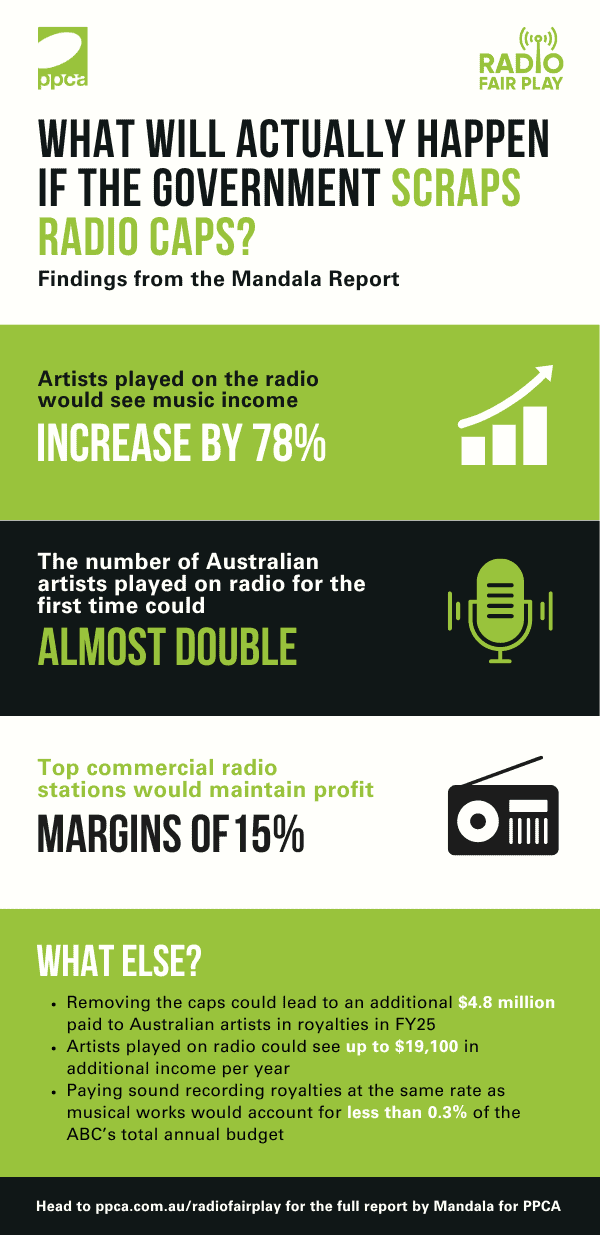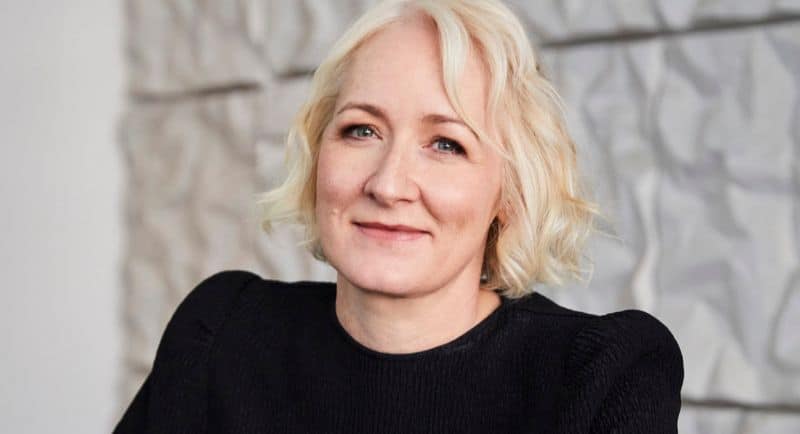A study commissioned by the Phonographic Performance Company of Australia (PPCA) and compiled by the economics advisory firm Mandala has shown that removing caps on sound recording royalties paid by radio businesses could lead to a potential 78% increase in income for artists.
The study also said the number of Australian artists played on the radio for the first time could almost double. Top commercial radio stations would maintain profit margins of 15%, whilst the broader radio industry margin would be slightly reduced from 13% to 11%, it claimed.
The study also said removing the caps could lead to an additional $4.8 million paid to Australian artists in royalties in 2024-25; artists played on radio could see up to $19,100 in additional income per year, or a 78% increase in income; paying sound recording royalties at the same rate as musical works would account for less than 0.3% of the ABC’s total annual budget; and if caps were removed, increased reinvestment from record labels could see double the number of new local artists played on radio for the first time.

PPCA’s shareholders are three multinational record labels – Sony Music Entertainment, Universal Music, and Warner Music.
The report follows Senate Committee hearings held on 7 March regarding the Copyright Legislation Amendment (Fair Pay for Radio Play) Bill 2023, introduced by Senator David Pocock.
The Bill amends the Copyright Act 1968 to remove restrictions limiting the Copyright Tribunal’s ability to determine the amount payable to rights holders in sound recordings when music is played on commercial and ABC radio. These restrictions are often referred to as caps, or radio caps.
PPCA CEO, Annabelle Herd, said removing the caps “is the single most effective way to increase fair compensation for artists when they need it most.”
“Radio has benefitted from decades of financial windfall from these provisions in the Copyright Act at the expense of local artists and labels. The heavy burden of subsidising Australian radio – a profitable and successful industry – cannot continue to fall on struggling local artists,” Herd added.
Since the bill’s introduction, CRA has warned of the “harm” to radio in regional and remote communities that could be done if it passes.
“If multinational record labels are allowed to hike up radio’s music fees it would harm the sustainability of stations – particularly in regional and remote communities where local media has already diminished,” former CRA chief executive officer Ford Ennals said in March.
“Radio is already paying almost $40 million a year in fees – any increase to this would hurt radio, which in turn hurts music. Radio plays an important role in promoting and supporting Australian artists and music and we want this to continue.”
Currently, recording royalties are capped at 1% of commercial radio revenue and 0.005c per head of population for ABC Radio.
Australia is the only country in the world with this sort of copyright law, and such a cap does not exist for any other type of copyright in Australia. No other copyright user benefits from a legislated cap including television broadcasters, schools, universities, libraries or small businesses such as nightclubs, gyms, shops, bars or restaurants.
–
Top image: Annabelle Herd
